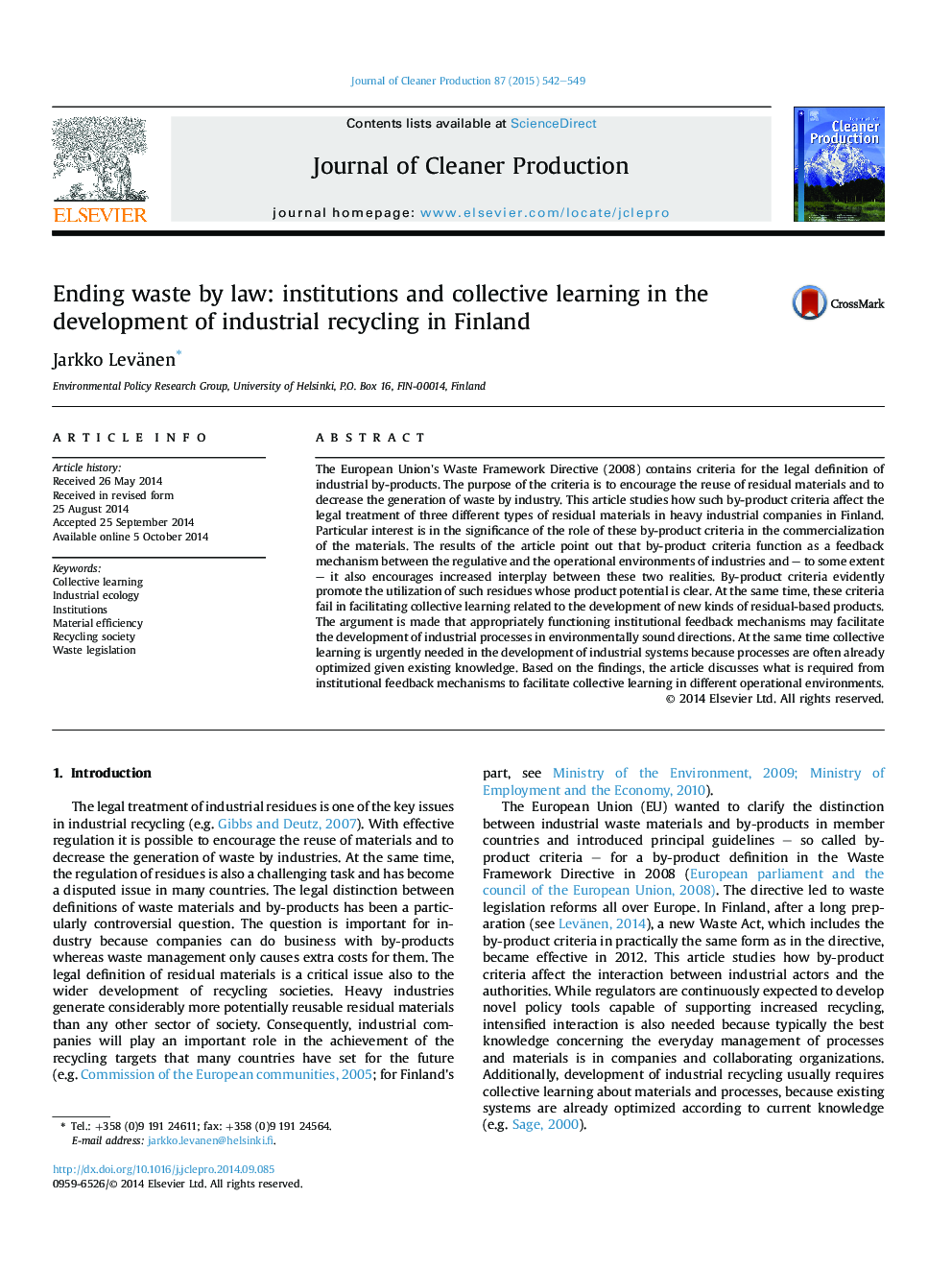| Article ID | Journal | Published Year | Pages | File Type |
|---|---|---|---|---|
| 8105253 | Journal of Cleaner Production | 2015 | 8 Pages |
Abstract
The European Union's Waste Framework Directive (2008) contains criteria for the legal definition of industrial by-products. The purpose of the criteria is to encourage the reuse of residual materials and to decrease the generation of waste by industry. This article studies how such by-product criteria affect the legal treatment of three different types of residual materials in heavy industrial companies in Finland. Particular interest is in the significance of the role of these by-product criteria in the commercialization of the materials. The results of the article point out that by-product criteria function as a feedback mechanism between the regulative and the operational environments of industries and - to some extent - it also encourages increased interplay between these two realities. By-product criteria evidently promote the utilization of such residues whose product potential is clear. At the same time, these criteria fail in facilitating collective learning related to the development of new kinds of residual-based products. The argument is made that appropriately functioning institutional feedback mechanisms may facilitate the development of industrial processes in environmentally sound directions. At the same time collective learning is urgently needed in the development of industrial systems because processes are often already optimized given existing knowledge. Based on the findings, the article discusses what is required from institutional feedback mechanisms to facilitate collective learning in different operational environments.
Related Topics
Physical Sciences and Engineering
Energy
Renewable Energy, Sustainability and the Environment
Authors
Jarkko Levänen,
